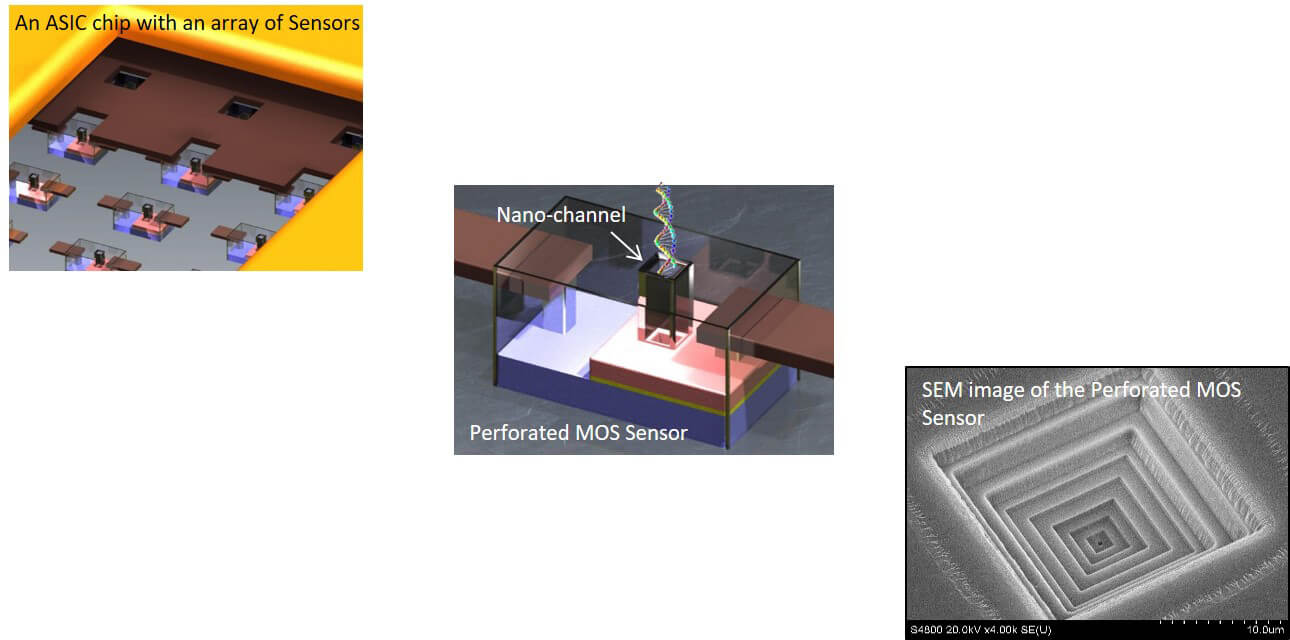 A Purdue University patented method for single biomolecule detection that overcomes limitations of current technologies may help in the fight against COVID-19. (Image provided)
A Purdue University patented method for single biomolecule detection that overcomes limitations of current technologies may help in the fight against COVID-19. (Image provided) WEST LAFAYETTE, Ind. – A patented method for single biomolecule detection that overcomes limitations of current technologies may help in the fight against COVID-19.
Purdue University innovators created a method that uses a special sensor similar to a computer chip. The application-specific integrated circuit chip is designed for the early detection of a number of pathogens and viruses.
"We want to find partners to move this technology to the public as soon as we can to help in COVID-19 testing," said Saeed Mohammadi, a Purdue professor of electrical and computer engineering. "We know it can be an effective, easy and inexpensive method for detecting viruses, potentially the one linked to the current pandemic."
The Purdue technique involves machine learning to train the system to detect certain features associated with particular diseases and viruses. Then, when a sample is run through the system, it can detect those features and confirm the presence of particular viruses and diseases. Simulations have shown this technique may be effective in detecting COVID-19.
This method uses a metal-oxide semiconductor sensor with embedded, fluidic nanochannels. As a biomolecule moves through the nanochannel, a high frequency current is measured that contains information about the biomolecule, such as the type of nucleotides in the case of DNA/RNA, which can be used to classify the molecule.
Mohammadi said, "This method does not have the problems associated with other nanopore techniques because it does not require the difficult drilling of extremely small nanopores, can detect four nucleotides at a time, and is not significantly affected by the rotation or position of the biomolecule in the nanochannel."
Mohammadi said the technology is simple enough that a manufacturer could use it to develop a test kit that could be used at home for virus and disease detection.
The team worked with the Purdue Research Foundation Office of Technology Commercialization to patent this technology. The office recently moved into the Convergence Center for Innovation and Collaboration in Discovery Park District, adjacent to the Purdue campus.






